Wes Anderson’s coterie of collaborators is as much a part of his whole deal as pastels and symmetry: an ever-expanding collection of A-listers and character actors, seemingly willing to drop everything for even a tiny role in one of his films (Hi, Christoph Waltz in “The French Dispatch!” Oh wait, he’s gone already). Some collaborators, like Owen Wilson, have been around from the very beginning of Anderson’s thirty-year career; others, such as Adrien Brody and Edward Norton, entered the flock fifteen years ago and never left. Whatever the case, they populate his movies by the dozens, giving finely-calibrated performances filled with comedy and pathos.
And yet, for as much acclaim as Anderson’s films receive, the individual performances within them often go unheralded – at least when it comes to award bodies. Like everything else in Anderson’s oeuvre, these performances are stylized, often taking the form of a clipped, mannered deadpan. Members of the Academy, who generally favor showy capital-A Acting or tasteful, understated naturalism, might not know what to do with these idiosyncrasies. But for those on Anderson’s wavelength, the performances in his movies are an embarrassment of riches, with virtually every one of his films containing the best work of someone’s career. If this list looks different from yours, it’s simply because we’re spoiled for choice.
For the purposes of this ranking, we’re not including Anderson’s latest film “Asteroid City,” which is expanding to more theaters this weekend, but if we did, we feel Jason Schwartzmann’s mournful but underrated performance would deserve serious consideration. Without further adieu, here are the top to best performances from Wes Anderson’s movies…
10. Bruce Willis – “Moonrise Kingdom”
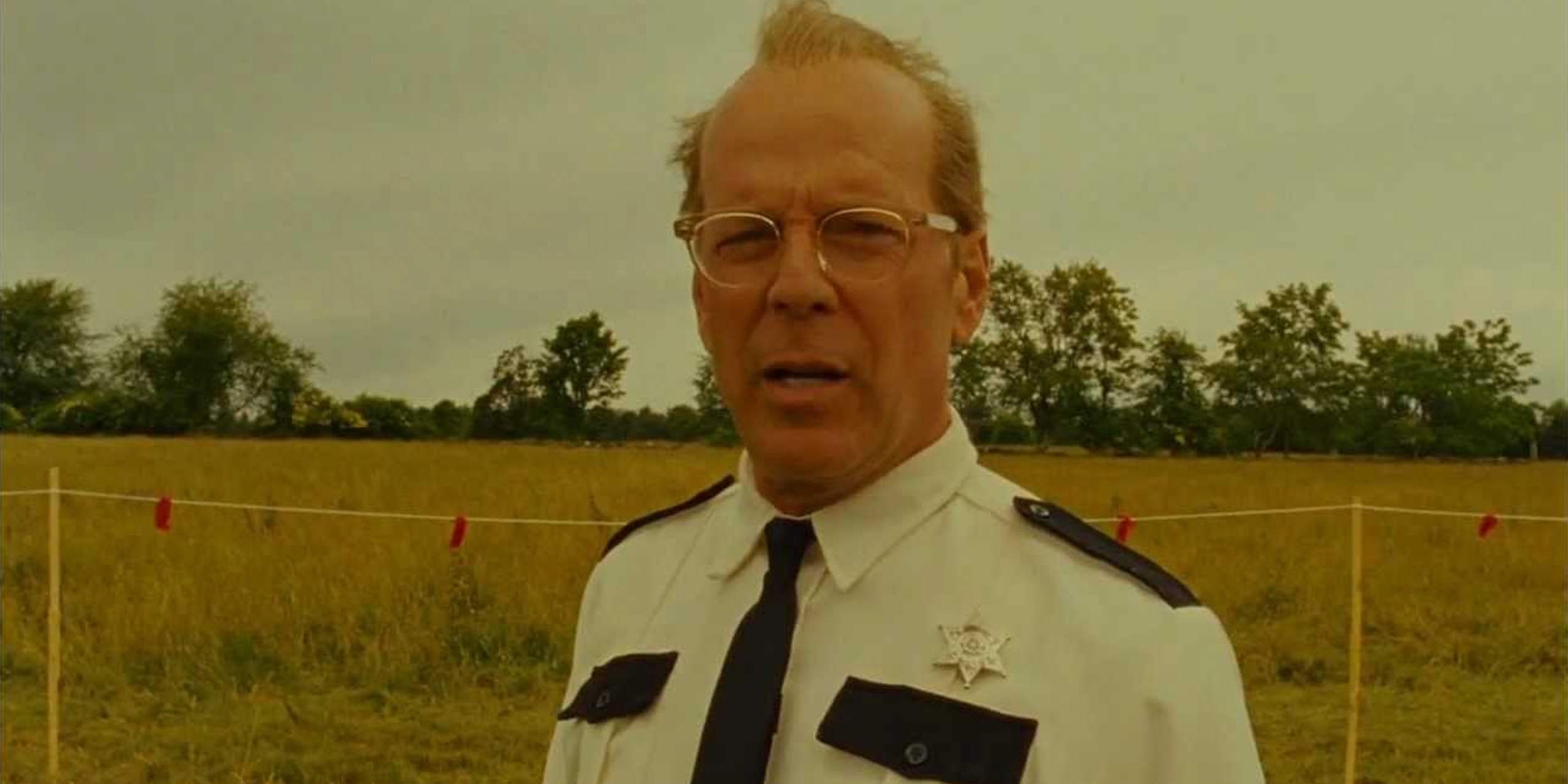 When Bruce Willis announced his retirement from acting following a dementia diagnosis last year, social media showed respect to some of his best performances: John McClane in “Die Hard,” Butch in “Pulp Fiction,” and David Dunn in “Unbreakable.” But for me, the role that lingers longest is his turn as Captain Duffy Sharp, a policeman on the sleepy island of New Penzance in “Moonrise Kingdom.” In the wrong hands, Willis’ understated presence felt like someone going through the motions; here, though, he’s perfect as a decent yet profoundly lonely man quietly nursing his emotional wounds. His gruff, fed-up persona gets some major laughs (“I can’t argue with anything you said, and I don’t have to because you’re twelve years old”). Still, the scene where Sharp gently confides in young Sam (Jared Gilman) about adulthood and unrequited love is what solidifies this as one of Willis’ best-ever performances.
When Bruce Willis announced his retirement from acting following a dementia diagnosis last year, social media showed respect to some of his best performances: John McClane in “Die Hard,” Butch in “Pulp Fiction,” and David Dunn in “Unbreakable.” But for me, the role that lingers longest is his turn as Captain Duffy Sharp, a policeman on the sleepy island of New Penzance in “Moonrise Kingdom.” In the wrong hands, Willis’ understated presence felt like someone going through the motions; here, though, he’s perfect as a decent yet profoundly lonely man quietly nursing his emotional wounds. His gruff, fed-up persona gets some major laughs (“I can’t argue with anything you said, and I don’t have to because you’re twelve years old”). Still, the scene where Sharp gently confides in young Sam (Jared Gilman) about adulthood and unrequited love is what solidifies this as one of Willis’ best-ever performances.
9. Anjelica Huston – “The Darjeeling Limited”
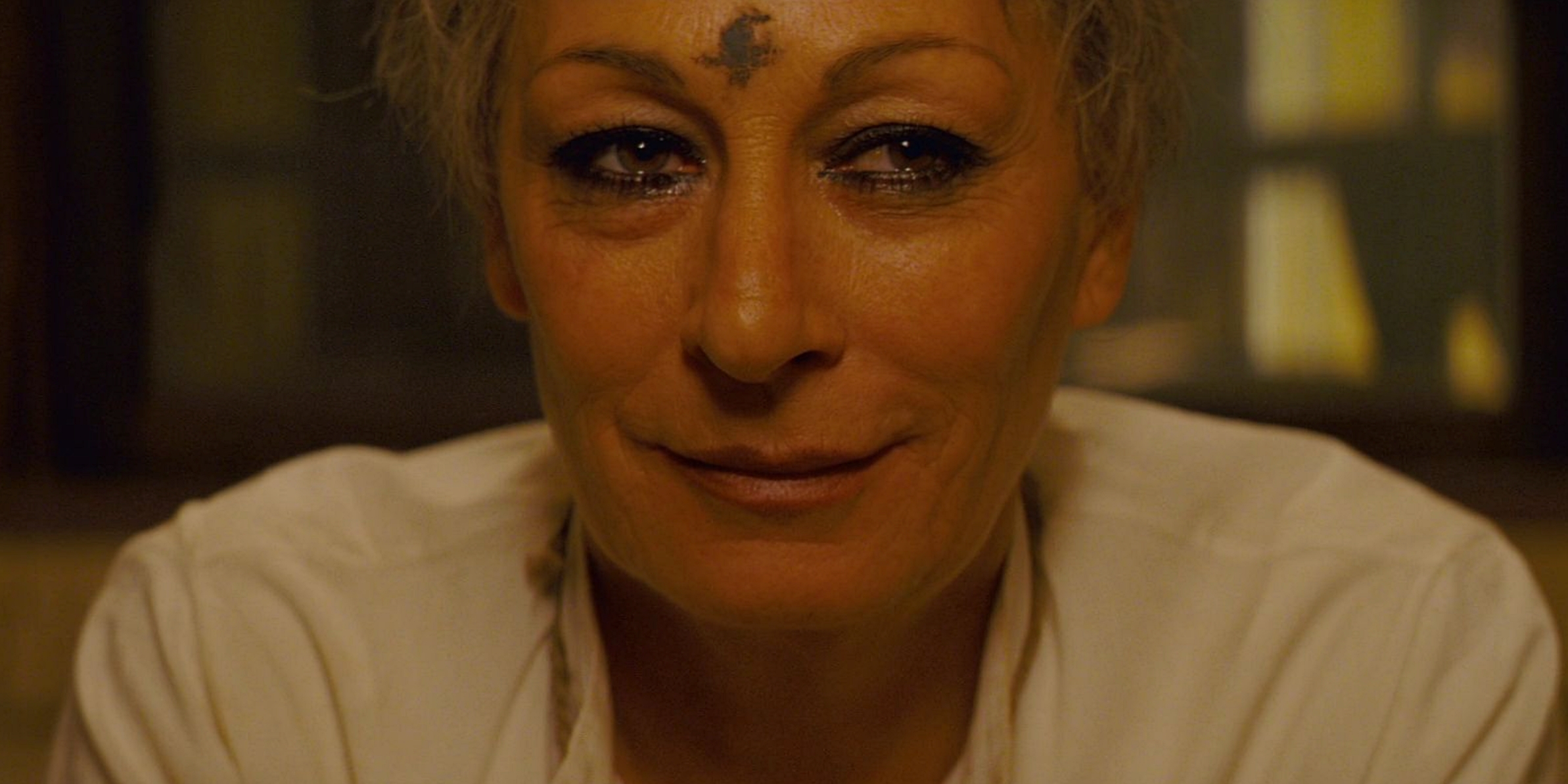 Despite the efforts of Richard Brody and the Criterion Collection, “The Darjeeling Limited” is often considered “lesser” Wes Anderson. But if that’s true, it’s only because the competition is so fierce: “The Darjeeling Limited” is still a lovely, tender film, exploring family bonds, self-actualization, and the parts of yourself you can never leave behind. The wealthy Whitman brothers (Owen Wilson, Jason Schwartzman, and Adrien Brody) go on a journey of self-discovery on an Indian luxury train after the death of their father, eventually leading to a meeting with their mother, Patricia, who became a nun in a Himalayan convent. Played by Anjelica Huston, better known as Etheline from “The Royal Tenenbaums,” Patricia is much like her children (flighty, bossy, ultimately good-hearted), except for the fact that she’s found the happiness that eludes them. Aloof yet tender, Huston creates a well-defined character in only a few short scenes, making the case that love means knowing when to let go.
Despite the efforts of Richard Brody and the Criterion Collection, “The Darjeeling Limited” is often considered “lesser” Wes Anderson. But if that’s true, it’s only because the competition is so fierce: “The Darjeeling Limited” is still a lovely, tender film, exploring family bonds, self-actualization, and the parts of yourself you can never leave behind. The wealthy Whitman brothers (Owen Wilson, Jason Schwartzman, and Adrien Brody) go on a journey of self-discovery on an Indian luxury train after the death of their father, eventually leading to a meeting with their mother, Patricia, who became a nun in a Himalayan convent. Played by Anjelica Huston, better known as Etheline from “The Royal Tenenbaums,” Patricia is much like her children (flighty, bossy, ultimately good-hearted), except for the fact that she’s found the happiness that eludes them. Aloof yet tender, Huston creates a well-defined character in only a few short scenes, making the case that love means knowing when to let go.
8. Olivia Williams – “Rushmore”
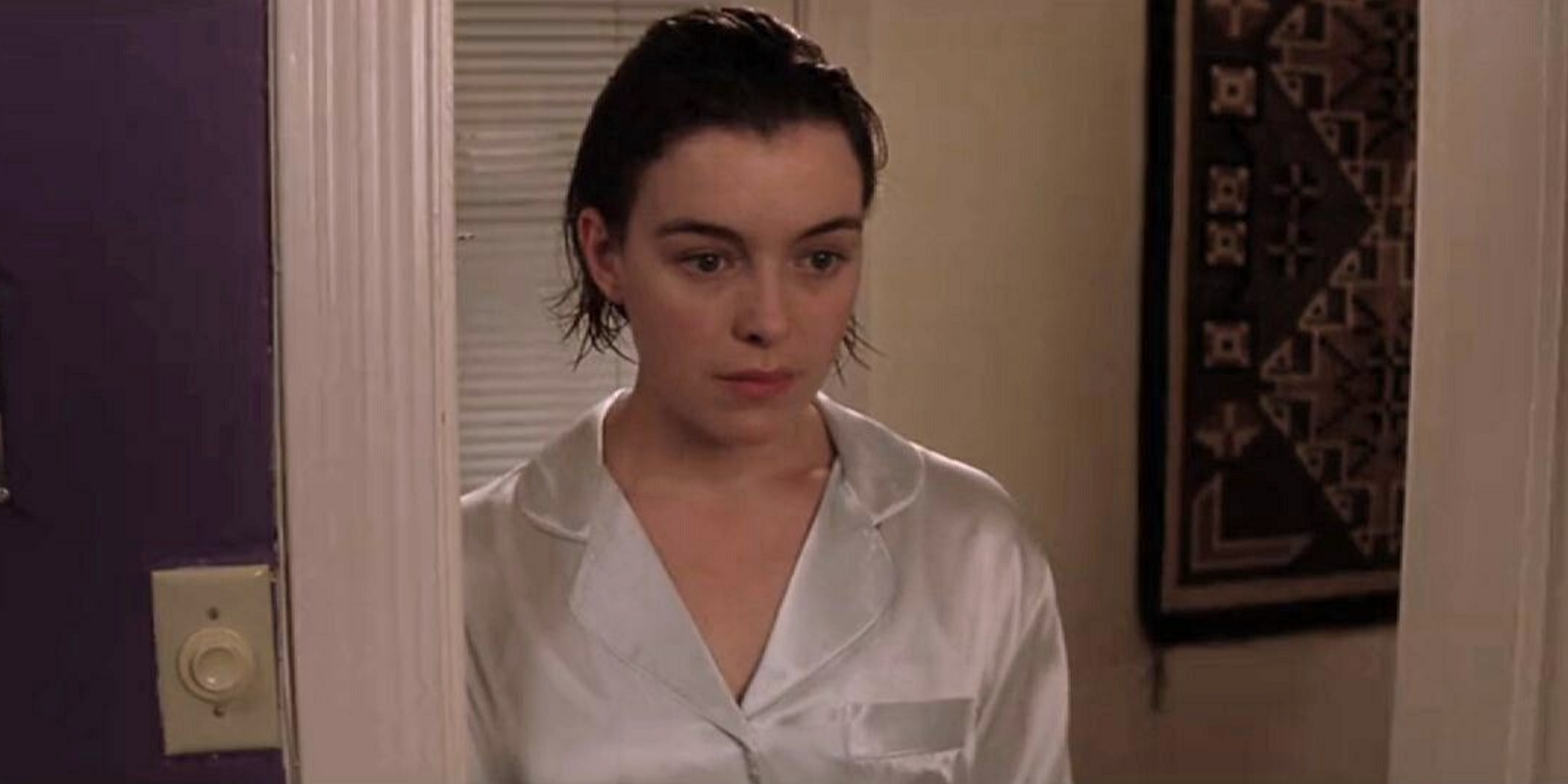 A movie that retains “Bottle Rocket’s” handmade charm while embracing the young director’s favorite stylistic flourishes, there’s a case to be made that “Rushmore” is Wes Anderson at his very best. The entire cast is splendid (two more performances show up later), but Olivia Williams may be the film’s unsung hero. As a widowed schoolteacher named Rosemary Cross, Williams balances a blossoming relationship with lonely industrialist Herman and a friendship with a precocious high schooler named Max that eventually turns sour. She’s gentle and kind, but she does not suffer fools; when a lovestruck Max won’t take no for an answer and gets physical, her withering response (“How would you describe it to your friends? Would you say that you fingered me?”) hits him right where it hurts. Soft-spoken and charming, it’s easy to see why Herman and Max fell in love with her – and why she’s right to demand they both grow up.
A movie that retains “Bottle Rocket’s” handmade charm while embracing the young director’s favorite stylistic flourishes, there’s a case to be made that “Rushmore” is Wes Anderson at his very best. The entire cast is splendid (two more performances show up later), but Olivia Williams may be the film’s unsung hero. As a widowed schoolteacher named Rosemary Cross, Williams balances a blossoming relationship with lonely industrialist Herman and a friendship with a precocious high schooler named Max that eventually turns sour. She’s gentle and kind, but she does not suffer fools; when a lovestruck Max won’t take no for an answer and gets physical, her withering response (“How would you describe it to your friends? Would you say that you fingered me?”) hits him right where it hurts. Soft-spoken and charming, it’s easy to see why Herman and Max fell in love with her – and why she’s right to demand they both grow up.
7. Owen Wilson – “Bottle Rocket”
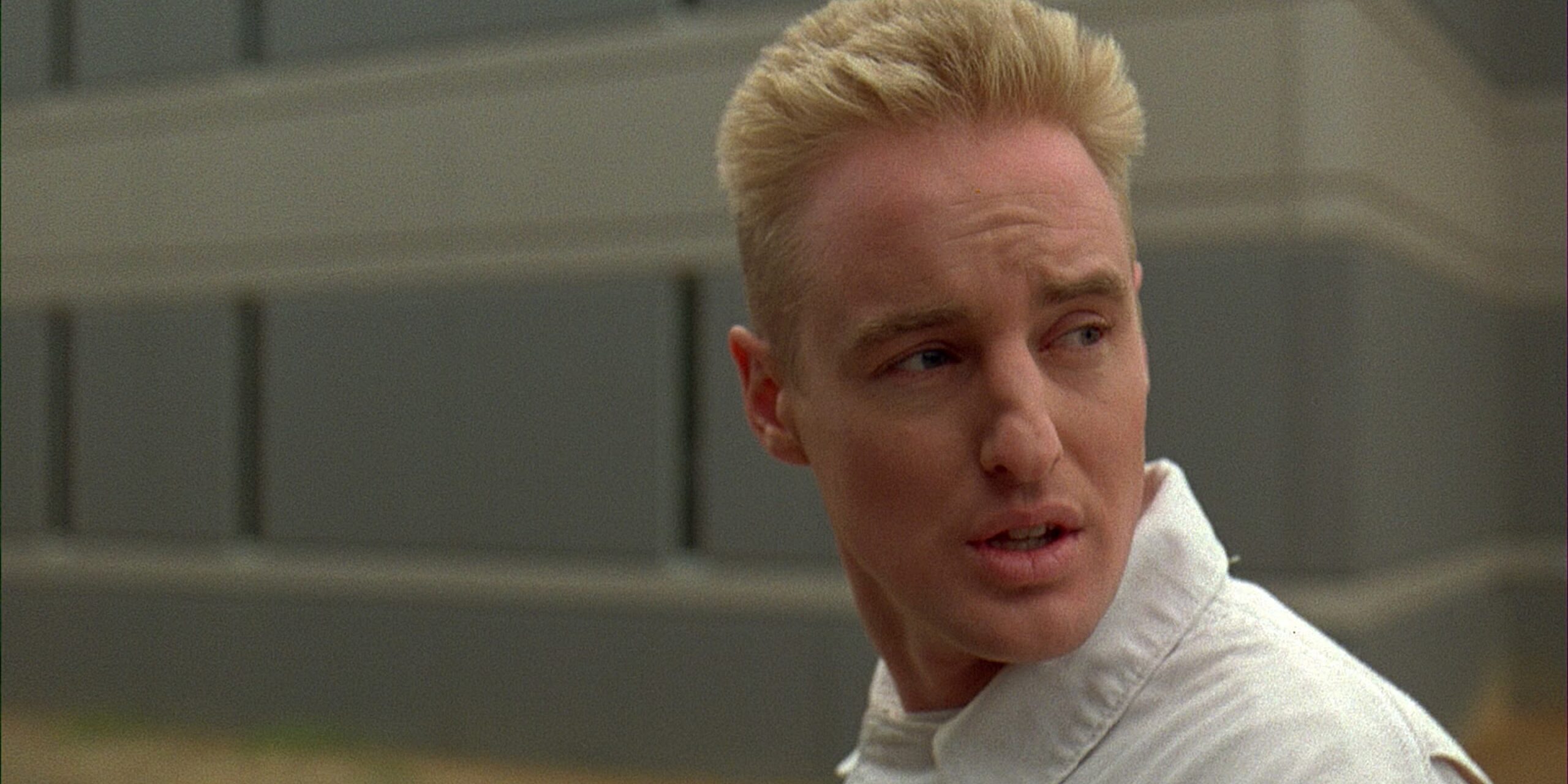 Wes Anderson’s shaggy, affable debut may have bombed at the box office, but “Bottle Rocket” managed to launch the careers of both its director and its star, Owen Wilson, who also co-wrote the screenplay. As Dignan, a friendly chatterbox of a crook with a fifty-year plan for the future, Wilson is effortlessly winning, even at his most petulant and delusional. His persona is already fully formed, complete with his first ever “oh wow!” and the Coen-brothers-by-way-of-Peanuts dialogue is the perfect medium for Wilson’s particular set of skills. He’s funny whether he’s discussing cardiovascular health or explaining why he’s putting tape on his nose for a robbery (“exactly!”), but there’s an undercurrent of boyish sweetness, too: when his friend Anthony (Owen’s brother Luke) irritably snaps that his attempts to cheer him up aren’t “doing it for [him],” Dignan’s earnest reply – “does the fact that I’m trying to do it do it for you?” – gets right to the heart of their friendship.
Wes Anderson’s shaggy, affable debut may have bombed at the box office, but “Bottle Rocket” managed to launch the careers of both its director and its star, Owen Wilson, who also co-wrote the screenplay. As Dignan, a friendly chatterbox of a crook with a fifty-year plan for the future, Wilson is effortlessly winning, even at his most petulant and delusional. His persona is already fully formed, complete with his first ever “oh wow!” and the Coen-brothers-by-way-of-Peanuts dialogue is the perfect medium for Wilson’s particular set of skills. He’s funny whether he’s discussing cardiovascular health or explaining why he’s putting tape on his nose for a robbery (“exactly!”), but there’s an undercurrent of boyish sweetness, too: when his friend Anthony (Owen’s brother Luke) irritably snaps that his attempts to cheer him up aren’t “doing it for [him],” Dignan’s earnest reply – “does the fact that I’m trying to do it do it for you?” – gets right to the heart of their friendship.
6. Luke Wilson – “The Royal Tenenbaums”
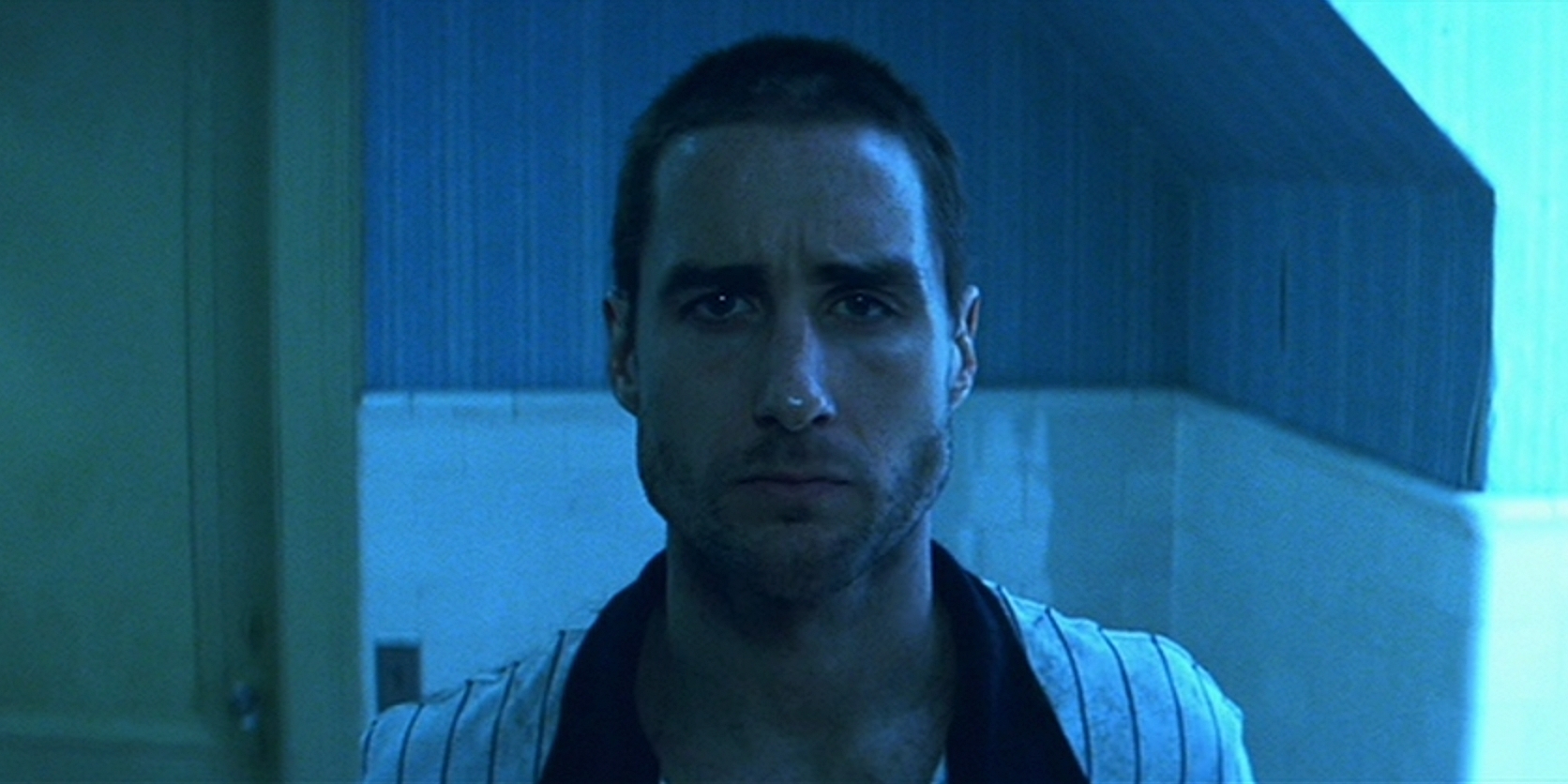 Red tracksuits, chic wallpaper, Gwyneth Paltrow chain smoking in the bathroom: “The Royal Tenenbaums,” along with “The Grand Budapest Hotel,” are what people who haven’t seen Wes Anderson movies picture when they think of Wes Anderson as a concept. But although TikTok parodies and AI abominations can approximate his style, they can never capture the melancholy ache beneath the surface. Consider Richie Tenenbaum, the depressed ex-tennis prodigy played by Luke Wilson. He looks silly on the surface, with his scruffy beard and white headband – and he’s in love with his adopted sister Margot (Paltrow), to boot. But while his tennis court meltdown is drolly hilarious (“he’s taken off his shoes and one of his socks, and…actually, I think he’s crying”), Richie’s pain is not a joke, and Wilson carries the weight of the world on his shoulders. His suicide attempt, where he shaves his beard and slits his wrists to Elliott Smith’s “Needle in the Hay,” is among the most shattering moments in Anderson’s entire filmography.
Red tracksuits, chic wallpaper, Gwyneth Paltrow chain smoking in the bathroom: “The Royal Tenenbaums,” along with “The Grand Budapest Hotel,” are what people who haven’t seen Wes Anderson movies picture when they think of Wes Anderson as a concept. But although TikTok parodies and AI abominations can approximate his style, they can never capture the melancholy ache beneath the surface. Consider Richie Tenenbaum, the depressed ex-tennis prodigy played by Luke Wilson. He looks silly on the surface, with his scruffy beard and white headband – and he’s in love with his adopted sister Margot (Paltrow), to boot. But while his tennis court meltdown is drolly hilarious (“he’s taken off his shoes and one of his socks, and…actually, I think he’s crying”), Richie’s pain is not a joke, and Wilson carries the weight of the world on his shoulders. His suicide attempt, where he shaves his beard and slits his wrists to Elliott Smith’s “Needle in the Hay,” is among the most shattering moments in Anderson’s entire filmography.
5. Jeffrey Wright – “The French Dispatch”
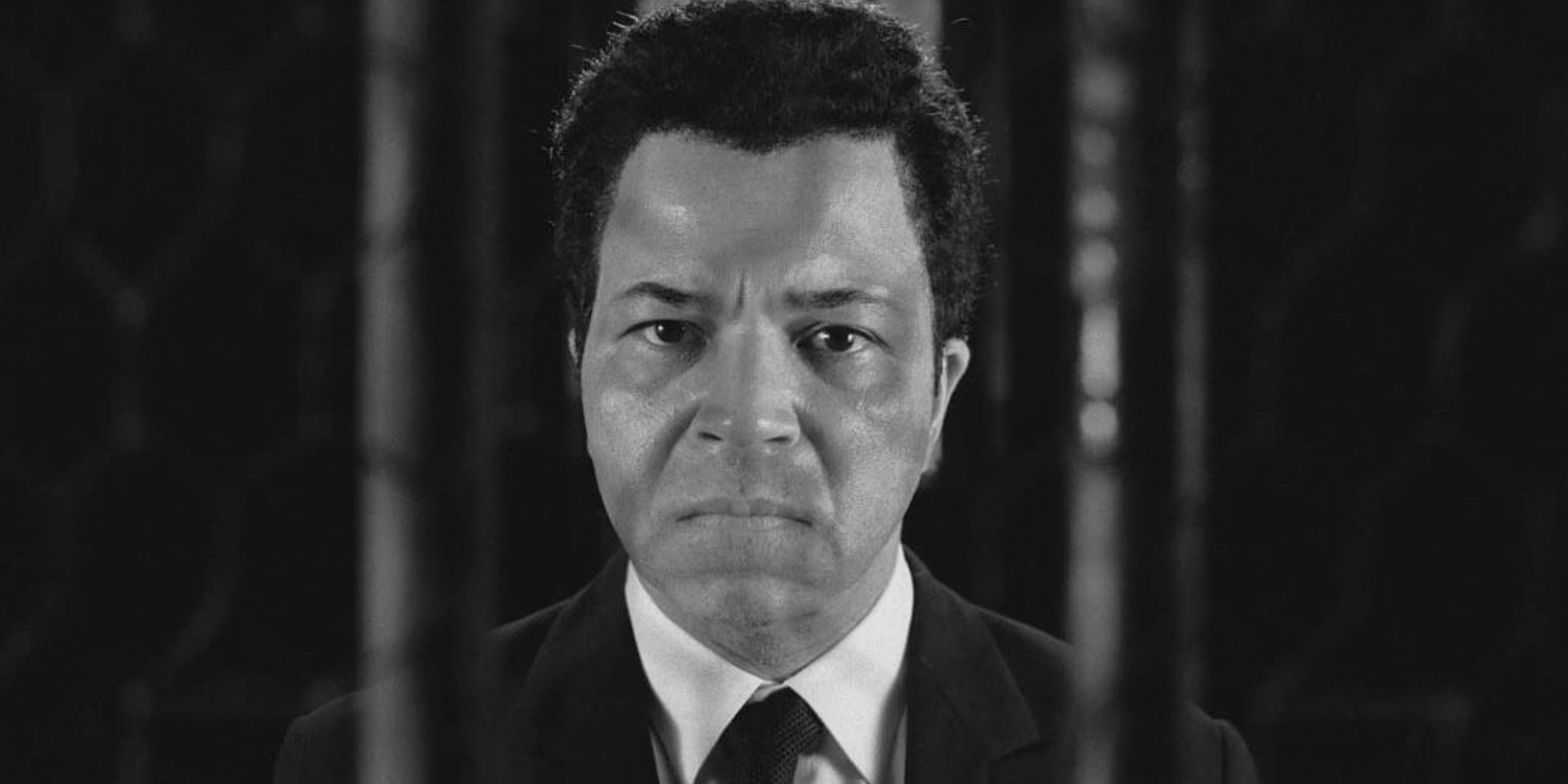 It’s always a pleasure when an actor joins a director’s ensemble and immediately fits in. “The French Dispatch” was Jeffrey Wright’s first performance in a Wes Anderson film (he’s working with him again now on “Asteroid City“), but he’s such a perfect fit you’d think he had been around since “Rushmore.” (Rarely has a line like “a weakness in cartography: the curse of the homosexual” sounded so natural.) Wright plays Roebuck Wright, an erudite food journalist for the titular publication, relating a story of kidnapping, poison, and police food to a talk show host. Roebuck’s sonorous voice and persona as a public intellectual (as well as another aspect of his personality that plays a key role) recall James Baldwin, but Wright isn’t doing an impression. Roebuck is his own fascinating character: a debonair American expat in Paris who makes himself the most interesting man in the room to deal with the bittersweet loneliness, the “solitary feast,” of a life abroad.
It’s always a pleasure when an actor joins a director’s ensemble and immediately fits in. “The French Dispatch” was Jeffrey Wright’s first performance in a Wes Anderson film (he’s working with him again now on “Asteroid City“), but he’s such a perfect fit you’d think he had been around since “Rushmore.” (Rarely has a line like “a weakness in cartography: the curse of the homosexual” sounded so natural.) Wright plays Roebuck Wright, an erudite food journalist for the titular publication, relating a story of kidnapping, poison, and police food to a talk show host. Roebuck’s sonorous voice and persona as a public intellectual (as well as another aspect of his personality that plays a key role) recall James Baldwin, but Wright isn’t doing an impression. Roebuck is his own fascinating character: a debonair American expat in Paris who makes himself the most interesting man in the room to deal with the bittersweet loneliness, the “solitary feast,” of a life abroad.
4. Gene Hackman – “The Royal Tenenbaums”
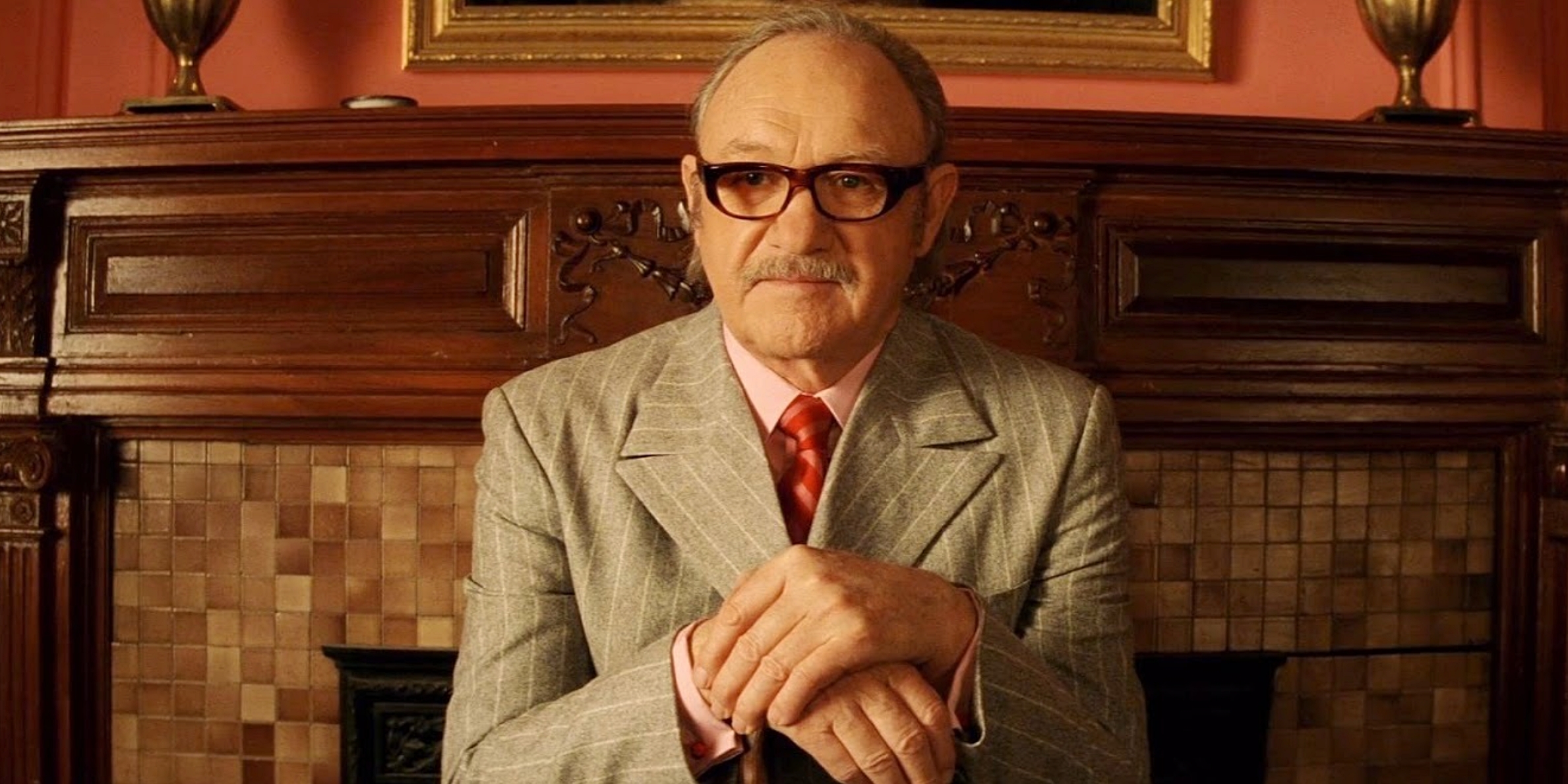 Almost every actor who’s worked with Anderson gushes about the experience – with the notable exception of Gene Hackman. After being prodded by Anderson for a year and a half, he reluctantly agreed to play the titular patriarch of “The Royal Tenenbaums” and was by all accounts a massive headache on set. But despite that animosity, Hackman’s performance speaks for itself. He’s in great form as the kind of domineering personality whose charisma is magnetic even as he makes his entire family miserable (If you look at the film’s poster, Royal’s the only one smiling). Hackman lands lines like “I’m sorry for your loss, your mother was a terribly attractive woman” with deadpan panache, keeping his powder dry for blustery moments like his confrontation with Danny Glover’s Henry (“you trying to steal my woman? You heard me, Coltrane!”) But if he went too broad with the comedy, his eventual reconciliation with his family wouldn’t be so powerful – and Hackman nails the quiet drama of a man accepting reality and learning what really matters.
Almost every actor who’s worked with Anderson gushes about the experience – with the notable exception of Gene Hackman. After being prodded by Anderson for a year and a half, he reluctantly agreed to play the titular patriarch of “The Royal Tenenbaums” and was by all accounts a massive headache on set. But despite that animosity, Hackman’s performance speaks for itself. He’s in great form as the kind of domineering personality whose charisma is magnetic even as he makes his entire family miserable (If you look at the film’s poster, Royal’s the only one smiling). Hackman lands lines like “I’m sorry for your loss, your mother was a terribly attractive woman” with deadpan panache, keeping his powder dry for blustery moments like his confrontation with Danny Glover’s Henry (“you trying to steal my woman? You heard me, Coltrane!”) But if he went too broad with the comedy, his eventual reconciliation with his family wouldn’t be so powerful – and Hackman nails the quiet drama of a man accepting reality and learning what really matters.
3. Bill Murray – “Rushmore”
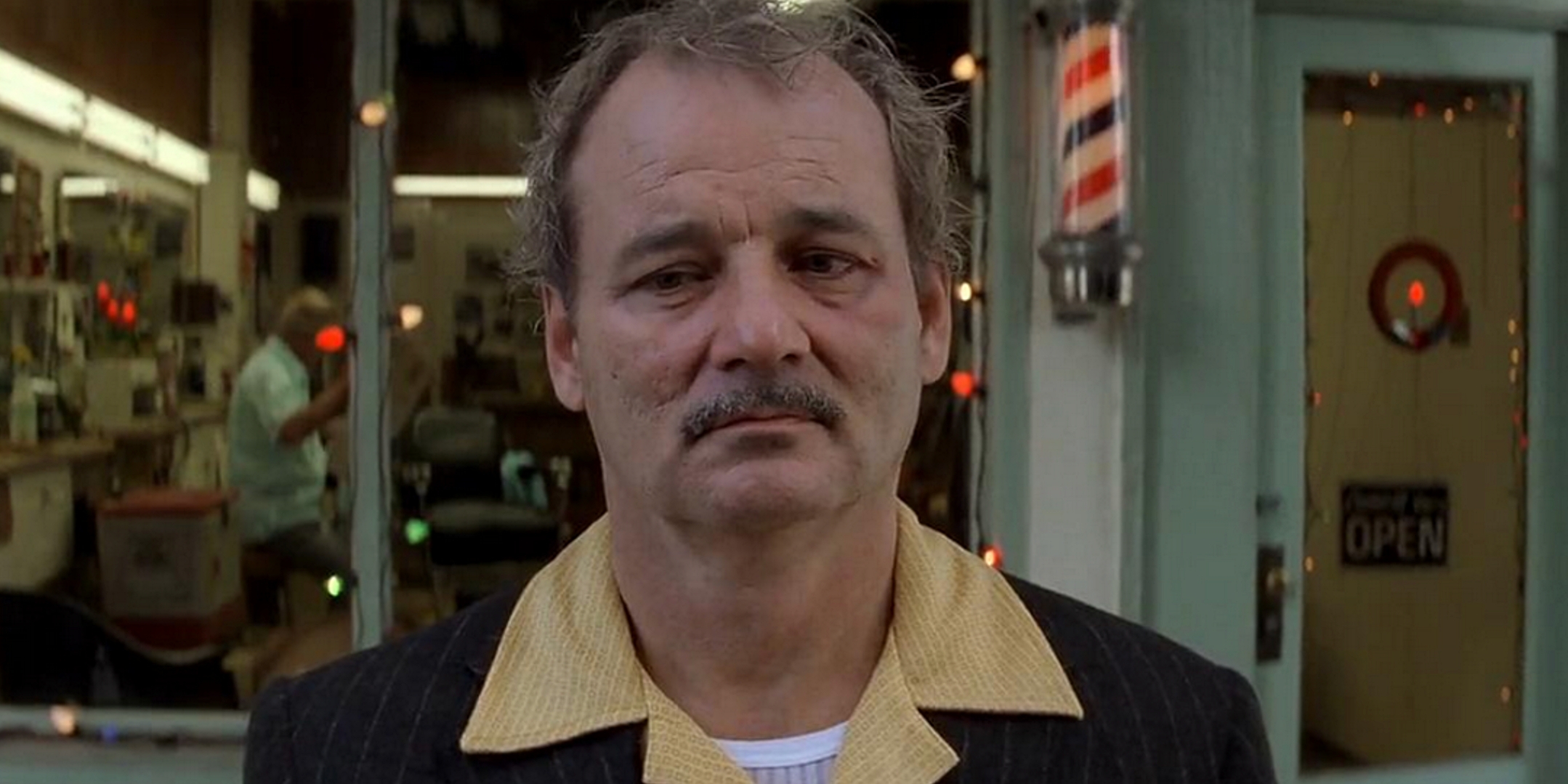 The first and best collaboration between Wes Anderson and his most famous creative partner. When Bill Murray was approached to play lonely industrialist Herman Blume in “Rushmore,” he loved the screenplay so much that he agreed to be paid scale, and it’s easy to see why. The film knows exactly what to do with Murray’s dry wit and wry detachment: it captures Herman’s numb dissatisfaction with his stifling existence, but it’s also not above having him, say, interrupt a kid’s basketball game by summoning his inner Dikembe Mutombo. It makes sense that a man like Herman would befriend a precocious kid like Max Fischer; he may be a middle-aged millionaire, but he’s as adrift and uncertain as an alienated teenager, and Murray locates the sensitive spirit behind his shuffling, blasé demeanor. When he admits to Max, after his divorce, that he’s “a little bit lonely these days,” Murray precedes it with a faux-casual “mmmm” just long enough to make it clear that he’s been feeling lonely all his life.
The first and best collaboration between Wes Anderson and his most famous creative partner. When Bill Murray was approached to play lonely industrialist Herman Blume in “Rushmore,” he loved the screenplay so much that he agreed to be paid scale, and it’s easy to see why. The film knows exactly what to do with Murray’s dry wit and wry detachment: it captures Herman’s numb dissatisfaction with his stifling existence, but it’s also not above having him, say, interrupt a kid’s basketball game by summoning his inner Dikembe Mutombo. It makes sense that a man like Herman would befriend a precocious kid like Max Fischer; he may be a middle-aged millionaire, but he’s as adrift and uncertain as an alienated teenager, and Murray locates the sensitive spirit behind his shuffling, blasé demeanor. When he admits to Max, after his divorce, that he’s “a little bit lonely these days,” Murray precedes it with a faux-casual “mmmm” just long enough to make it clear that he’s been feeling lonely all his life.
2. Jason Schwartzman – “Rushmore”
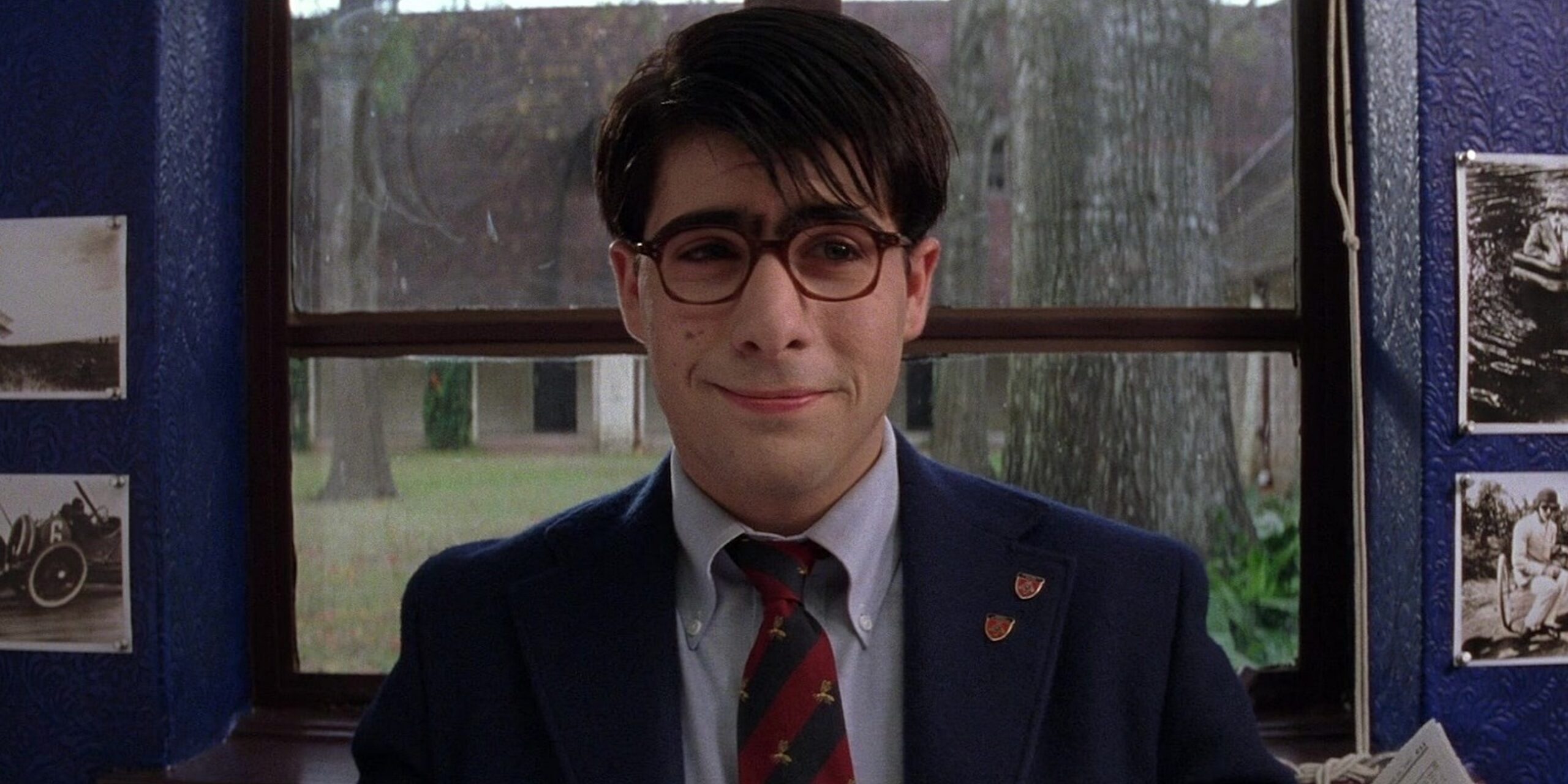 For a particular type of person who was a certain type of teenager, watching Max Fischer is like being faced with a cringe compilation sourced from your own high school years. He’s precocious but naive, ambitious but unfocused, and smart but not smart enough to realize he has much more to learn. He converses with adults using words and phrases he read in books (“You were in Vietnam, if I’m not mistaken? Were you in the shit?”). He airily declares that he’ll “make some calls” to his private school’s administration to get his way. He brings up his successes – “I wrote a hit play!” – as though someone will give him a gold star at any minute. In his debut performance, Jason Schwartzman walks as tricky a tightrope as any Anderson protagonist has had to walk: he has to be a petty, entitled little shit but harmless and sensitive enough that you root for him to get back up when he’s knocked down. Schwartzman, with his lisping voice and pompous demeanor, makes sure we never forget Max’s fundamental neediness, even when he’s at his most full of himself. He’s just a kid, after all – and so were we, once.
For a particular type of person who was a certain type of teenager, watching Max Fischer is like being faced with a cringe compilation sourced from your own high school years. He’s precocious but naive, ambitious but unfocused, and smart but not smart enough to realize he has much more to learn. He converses with adults using words and phrases he read in books (“You were in Vietnam, if I’m not mistaken? Were you in the shit?”). He airily declares that he’ll “make some calls” to his private school’s administration to get his way. He brings up his successes – “I wrote a hit play!” – as though someone will give him a gold star at any minute. In his debut performance, Jason Schwartzman walks as tricky a tightrope as any Anderson protagonist has had to walk: he has to be a petty, entitled little shit but harmless and sensitive enough that you root for him to get back up when he’s knocked down. Schwartzman, with his lisping voice and pompous demeanor, makes sure we never forget Max’s fundamental neediness, even when he’s at his most full of himself. He’s just a kid, after all – and so were we, once.
1. Ralph Fiennes – “The Grand Budapest Hotel”
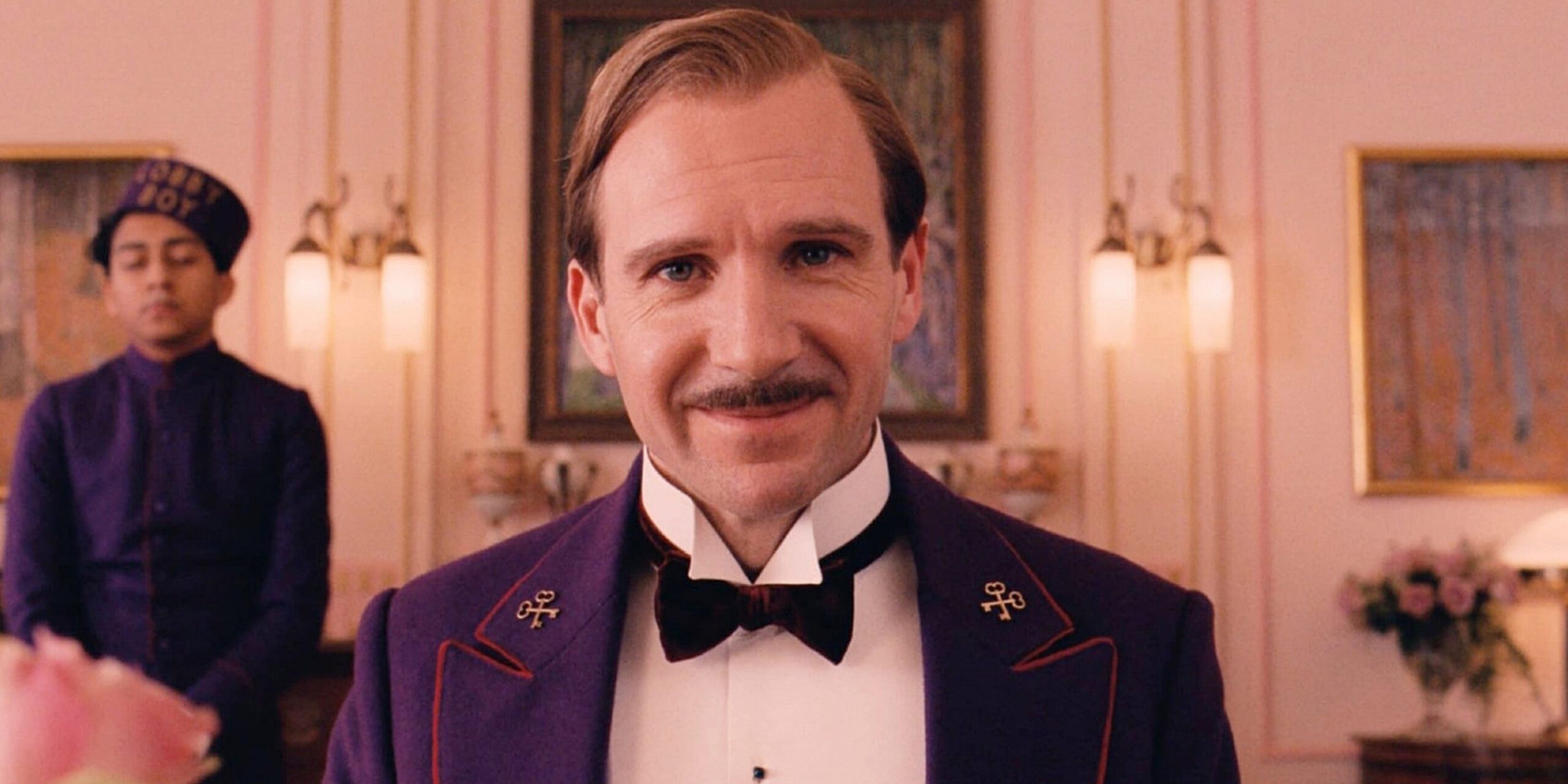 “The Grand Budapest Hotel,” all things considered, did quite well for itself at the 87th Oscars. It was nominated for nine awards, winning four, and while it arguably deserved to do even better (it’s undoubtedly my favorite of the Best Picture nominees), it was a strong showing all the same. But there was one glaring omission: Ralph Fiennes, who played the titular hotel’s concierge, M. Gustave, for Best Actor. Best known for playing hateful villains like Amon Goth and Voldemort, Fiennes makes Gustave one of the most likable characters in cinema: a sophisticated, hyper-competent professional, deeply committed to hospitality, trying to bring grace and dignity to a world that grows uglier by the day. Fiennes proves himself a brilliant comic actor, earning laughs with the juxtaposition between his polished surface and his bursts of ungentlemanly behavior – as when he politely greets his arresting officers before turning heel and sprinting away. But there’s an undeniable sadness to Gustave, too, a man who holds manners and culture in the highest esteem and who is faced with a future that has no use for such things. With his stiff upper lip and vulnerable eyes, Fiennes makes the audience feel for Gustave as his world disappears around him, but he’s too dignified to let them pity him. To quote his bellboy: “There are still faint glimmers of civilization left in this barbaric slaughterhouse that was once known as humanity. He was one of them. What more is there to say?”
“The Grand Budapest Hotel,” all things considered, did quite well for itself at the 87th Oscars. It was nominated for nine awards, winning four, and while it arguably deserved to do even better (it’s undoubtedly my favorite of the Best Picture nominees), it was a strong showing all the same. But there was one glaring omission: Ralph Fiennes, who played the titular hotel’s concierge, M. Gustave, for Best Actor. Best known for playing hateful villains like Amon Goth and Voldemort, Fiennes makes Gustave one of the most likable characters in cinema: a sophisticated, hyper-competent professional, deeply committed to hospitality, trying to bring grace and dignity to a world that grows uglier by the day. Fiennes proves himself a brilliant comic actor, earning laughs with the juxtaposition between his polished surface and his bursts of ungentlemanly behavior – as when he politely greets his arresting officers before turning heel and sprinting away. But there’s an undeniable sadness to Gustave, too, a man who holds manners and culture in the highest esteem and who is faced with a future that has no use for such things. With his stiff upper lip and vulnerable eyes, Fiennes makes the audience feel for Gustave as his world disappears around him, but he’s too dignified to let them pity him. To quote his bellboy: “There are still faint glimmers of civilization left in this barbaric slaughterhouse that was once known as humanity. He was one of them. What more is there to say?”
What do you think of this list? Have you seen “Asteroid City?” If so, what did you think of it? Please let us know your thoughts in the comments section below or on our Twitter account.
You can follow Joe and hear more of his thoughts on the Oscars and Film on Twitter at @HoeffnerJoe






